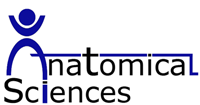Cell, Reproductive and Developmental Biology’
The Cell, Reproductive and Developmental Biology Research Division of the School of Anatomical Sciences is comprised of three major research groups:
The Toxicology Research Group focuses on environmental and molecular toxicology using basic research to understand important toxicological principles in the context of reproductive and developmental health (teratogenicity of certain foods their and components) as well as neural toxicity of xenobiotic substances. The reproductive research interest extends to effects/toxicity of commonly used drugs and chemicals in the environment (food, air, water) on testicular and Leydig cell function, epididymis and prostate and associated receptors – (role of steroid hormone receptors in mediating effects of environmental toxicants) as it affects male reproductive health as well as in the context of possible interactive influence of protein malnutrition. Prof Mbajiorgu EF and Mr Thabiso Tshabalala.
The Alcohol and Life style Research group investigates skeletopathy in life style diseases, particularly Type 2 diabetes and fetal alcohol syndrome. Both these conditions affect the skeletal system in that they increase propensity for osteoporosis and fracture, utilizing Micro Focus X-ray Computed Tomography (VOLUME GRAPHICS ? VGStudio MAX, software), routine histochemical and immunohistochemical analysis of cytokines that that regulate bone remodelling such as bone morphogenic proteins and transforming growth factors, three-point bending tests using a universal testing machine to determine bone strength. Dr Robert Ndou
The Tumour Biology Research Group is investigating immune regulation of cancer and thrombotic complications of cancer focusing on the impact of hormonal drugs and ethnomedicines. Multidisciplinary approaches are used to unravel complex relationships, requiring both qualitative and quantitative methods of analysis. Techniques employed include flow cytometry, immunocytochemistry, electron microscopy, PCR and cytokine analysis. This research area is driven by Dr Tanya Augustine and Mrs Kutlwano Xulu.
Generally the division uses different facilities available in the School and Faculty to translate the information gained from these studies into applied testing systems and clinical studies and practice.

